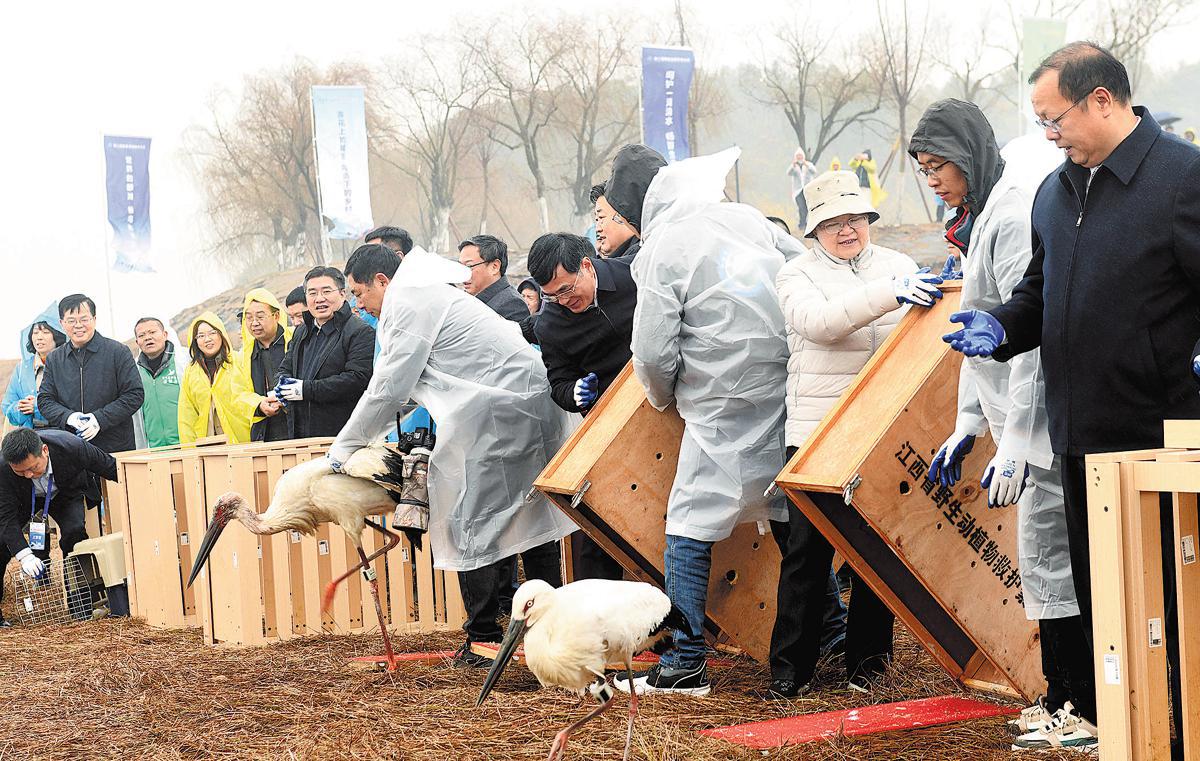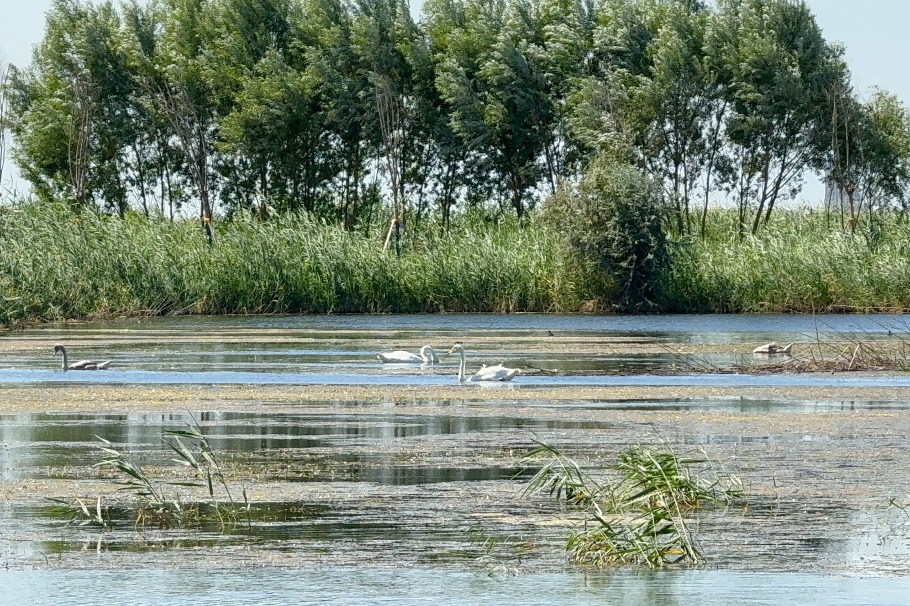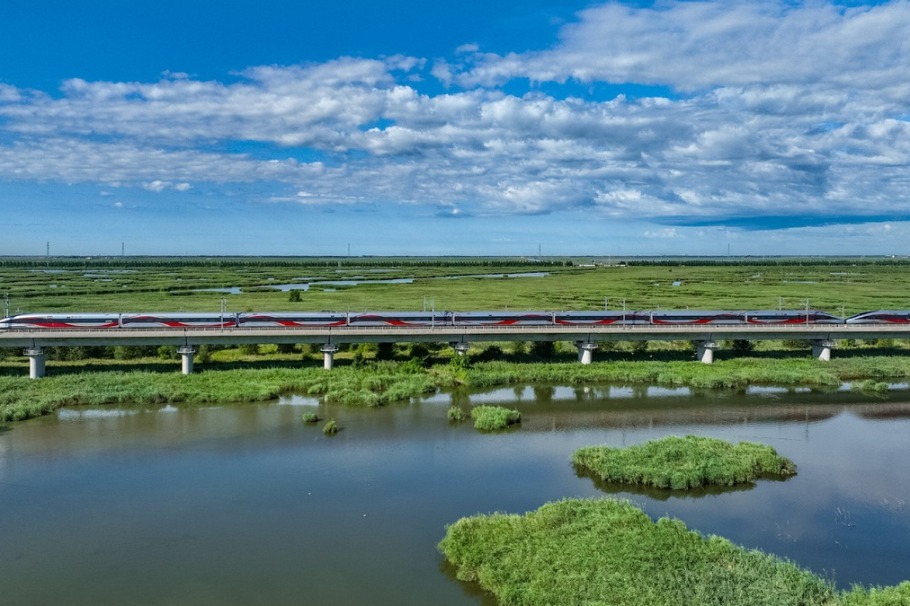Siberian cranes adapt to climate change
As droughts, floods hit Poyang Lake, endangered birds take to farms as food source


Tourism boom
Meanwhile, with more migratory birds and increased tourism, areas surrounding Poyang Lake have experienced a rise in income.
Since the launch of the third Po--yang Lake International Bird Watching Season in November 2023, Chaqizhou has welcomed a total of 500,000 visitors, generating 50 million yuan in tourism revenue.
Jiang Liangqing, a Chaqizhou farmer and bird protection volunteer, said that the period from October to March is his busiest time of year.
"I patrol every day, ensuring that the environment for the migratory birds is safe. During the bird-watching season, there are many tourists, and I also help maintain order," he said.
About 10 years ago, he became the head of a local rice planting cooperative, and the 67 hectares of rice fields set aside for the birds belong to this cooperative.
"With more migratory birds and visitors, it has become easier to sell our rice. The growth of bird-watching tourism has also increased local farmers' incomes. Each household's annual income can increase by about 1,000 yuan," the 56-year-old said.
"Additionally, bird droppings act as organic fertilizer, enriching the land they feed on, making spring plowing the next year more efficient."
Chaqizhou has a total of 41 households, and 21 of them have joined Jiang's cooperative, serving as rice field bases for their products.
One of the participants, Hu Xinghua, owns over 6.7 hectares of land.
Hu said that in recent years, any losses incurred when migratory birds feed on their crops have been compensated by the government.
With more tourists visiting, his income has also increased. During peak tourist seasons, he sometimes helps manage bird-watching activities, earning over 100 yuan a day.
"People's attitudes have also changed. Previously, they despised migratory birds, but now they understand the importance of protecting them and are happy to see their arrival," he said.
Jiang said that in the past, people would have to be at least 800 meters away to see the cranes.
"Now, when the cranes come, they realize we won't harm them. They remain calm and feed peacefully, even when we are just tens of meters away."
However, as humans and birds come closer together, experts have raised concerns.
In 2022, Wang Wenjuan, a migratory bird expert and associate professor at Beijing Forestry University, analyzed survey data from the Liyuzhou Wuxing Reclamation Farm.
She suggested in a paper: "Given that the rice fields around Poyang Lake contain abundant scattered rice grains, it is advisable to reduce the amount of artificially provided food. This will encourage Siberian cranes to disperse into the surrounding rice fields and lower the potential risk of disease transmission."
The study indicated that the birds' diet and behavioral habits show their presence in artificial habitats is often a last resort, as "their natural habitats are currently unable to provide sufficient food for the cranes". In this situation, supplementary feeding further encourages their aggregation.
Dai agreed, saying that reserving rice for the birds is an emergency measure to cope with climate change.
Unless extreme weather conditions occur or essential conditions are met, the continuous increase in the quantity of reserved rice should not be promoted, he said.
The researcher believes that the current food model can continue as it is, but he recommends avoiding more supplementation to "increase opportunities for migratory birds to forage independently in the wild".
"The key is to restore the balance of the Poyang Lake ecosystem and ensure that their original habitats — wetland conservation areas — offer sufficient food. The migratory birds will naturally return to their rightful places," he said.
zhaoruinan@chinadaily.com.cn
























